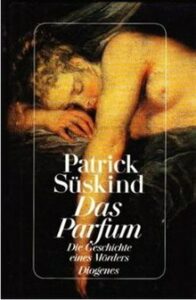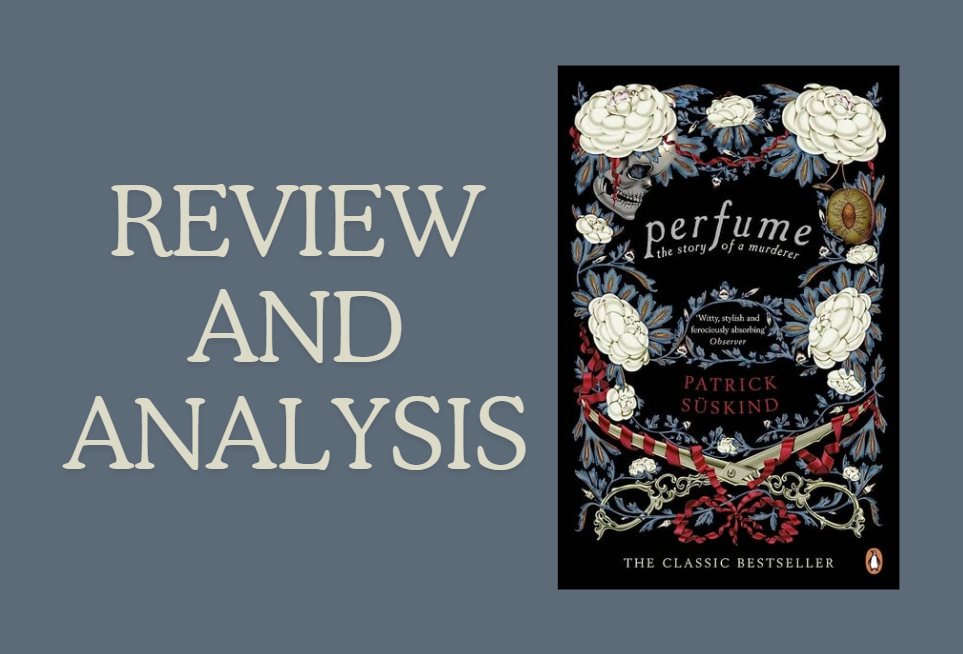Perfume: The Story of a Murderer book review and analysis are elaborately discussed in this article here. Perfume: The Story of a Murderer is a historical fiction novel by German author Patrick Süskind. The book was published in 1985 and tells the story of Jean-Baptiste Grenouille, an orphan in 18th-century France with a remarkable sense of smell.
Perfume: The Story Of A Murderer Characters
Here is a list of the primary characters in Perfume: The Story of a Murderer:
Jean-Baptiste Grenouille: The protagonist of the novel, born with an extraordinary sense of smell but rejected by society. He takes on an unhealthy obsession with capturing the scents of young women and begins killing them to create a perfect perfume.
Giuseppe Baldini: An Italian perfumer in Paris who reluctantly agrees to take on Grenouille as his perfumery apprentice.
Antoine Richis: The second consul in Grasse, a widower and the father of Laure Richis. He adores his daughter and does everything he can to protect her from Grenouille.
Laure Richis: The daughter of Antoine Richis, who becomes the object of Grenouille’s obsession.
Marquis de La Taillade-Espinasse: The liege lord of Pierrefort and member of Parliament who receives the report about Grenouille being robbed and held captive in a cave.
Madame Arnulfi: Honore Arnulfi’s widow, a prosperous and shrewd businesswoman who employs Grenouille.
Other notable characters include Baldini’s rivals Brouet and Calteau, the children at Madame Gaillard’s boarding house where Grenouille lives as a young boy, and the Marquis de Montesquieu.
Plot Summary Of Perfume
The novel is structured around the life of Grenouille, who is born with an exceptional sense of smell but is rejected by society. As a tanner’s apprentice, he finally makes his first delivery to Paris, where he is enamored with the new scents. He becomes infatuated with a redheaded girl selling yellow plums and follows her while attempting to sniff her.
However, his behavior frightens her. Grenouille becomes obsessed with capturing the scents of young women and begins killing them to create a perfect perfume.
Grenouille eventually meets Giuseppe Baldini, a perfumer who recognizes his talent and takes him on as an apprentice. Grenouille becomes increasingly obsessed with creating the perfect scent and ultimately creates a perfume that can manipulate people’s emotions. He uses this perfume to control a crowd of people, but his plan backfires when they become enraged and kill him.
Relevant Themes In The Book
The novel explores themes of obsession, the charismatic power of evil, and the relationship between scent and emotion. It also examines the social class and hierarchy of 18th-century France, with Grenouille being born into poverty and struggling to find his place in a society that values wealth and status above all else.
Obsession:
One of the central themes of the book is obsession. Jean-Baptiste Grenouille becomes obsessed with capturing the scents of young women and creating the perfect perfume. His focus drives him to commit murder and ultimately leads to his downfall.
Power:
The book also explores the theme of power. Grenouille’s exceptional sense of smell gives him unique control over others, allowing him to manipulate them through scent. The novel examines how energy can be used for both good and evil.
Social Hierarchy:
Another theme explored in the book is social hierarchy. Grenouille is born into poverty and is rejected by society because of his lack of social status. The novel examines how social class and order shape people’s lives and opportunities.
Scent and Emotion:
Scent plays a central role in the plot and themes of the novel. The book explores the relationship between smell and emotion and how incense can manipulate and control others.
Charismatic Evil:
The novel also examines the theme of charismatic evil. Grenouille is a charismatic figure who can manipulate others through his exceptional sense of smell. The book explores how evil can be attractive and seductive, even destructive.
Reception:
Perfume: The Story of a Murderer has been widely praised for its unique blend of historical fiction, horror, and magical realism. The book has been described as “hauntingly powerful” and “a masterpiece.” It has also been adapted into a film directed by Tom Tykwer in 2006.
Does The Book Have Heavy Elements Of Realism?
Perfume: The Story of a Murderer is a work of historical fiction not based on a true story 1. However, the novel is set in 18th-century France and explores themes such as social hierarchy and the relationship between scent and emotion that are grounded in historical reality. The book also examines the use of perfume in 18th-century France, which was a time when fragrance was used extensively by the upper classes.

Overall, while Perfume: The Story of a Murderer is not a true story, it does contain realism elements grounded in historical fact.
Closing Words On Perfume: The Story of a Murderer Book Review And Analysis
Overall, the thought-provoking book Perfume: The Story of a Murderer is a novel that explores complex themes such as obsession, power, and social hierarchy. It offers a unique vision on the relationship between scent and emotion and has been widely regarded as one of Süskind’s best works.

